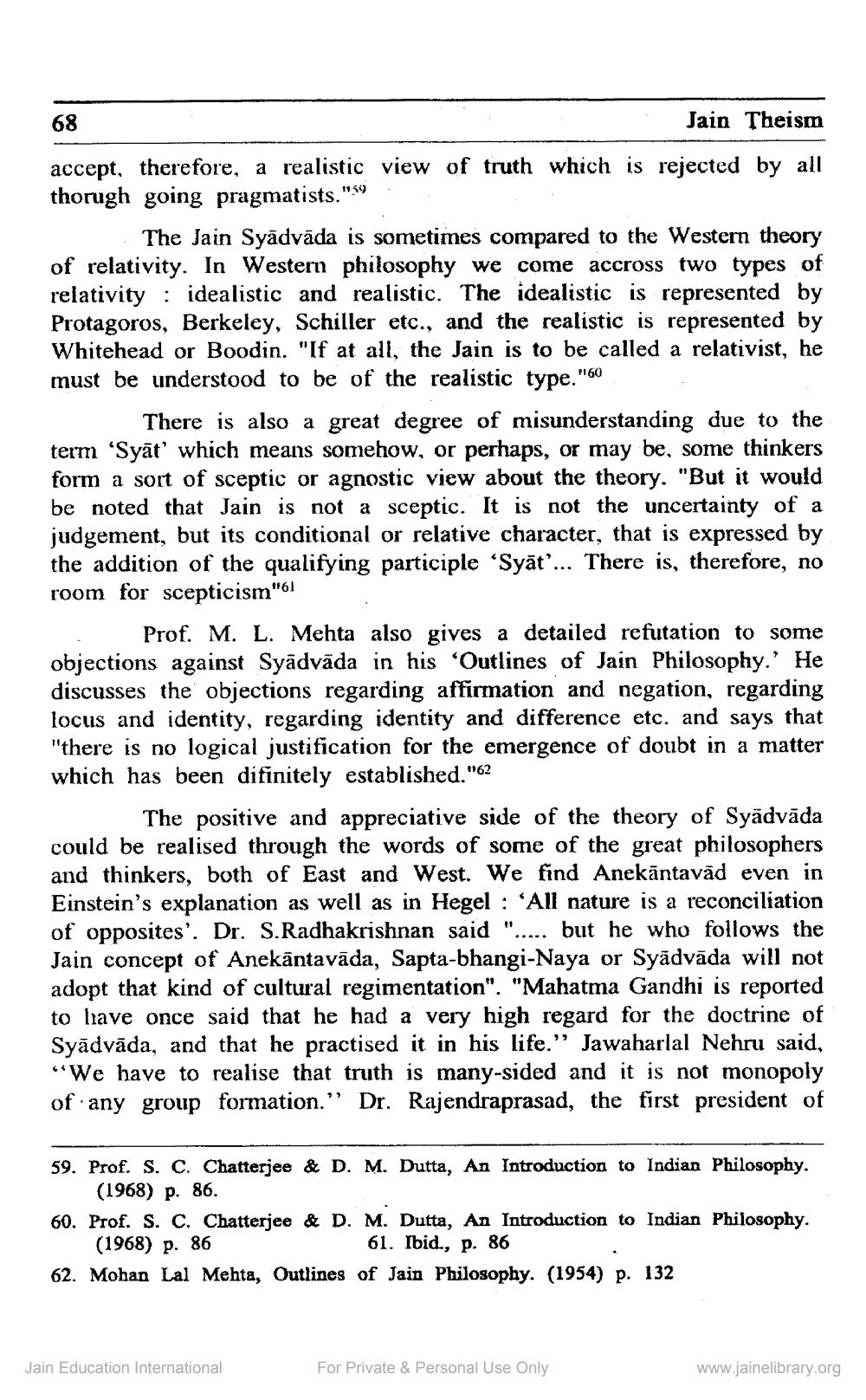________________
68
Jain Theism
accept, therefore, a realistic view of truth which is rejected by all thorugh going pragmatists."59
The Jain Syadvāda is sometimes compared to the Western theory of relativity. In Western philosophy we come accross two types of relativity idealistic and realistic. The idealistic is represented by Protagoros, Berkeley, Schiller etc., and the realistic is represented by Whitehead or Boodin. "If at all, the Jain is to be called a relativist, he must be understood to be of the realistic type."
There is also a great degree of misunderstanding due to the term 'Syat' which means somehow, or perhaps, or may be, some thinkers form a sort of sceptic or agnostic view about the theory. "But it would be noted that Jain is not a sceptic. It is not the uncertainty of a judgement, but its conditional or relative character, that is expressed by the addition of the qualifying participle 'Syāt'... There is, therefore, no room for scepticism"61
Prof. M. L. Mehta also gives a detailed refutation to some objections against Syādväda in his 'Outlines of Jain Philosophy.' He discusses the objections regarding affirmation and negation, regarding locus and identity, regarding identity and difference etc. and says that "there is no logical justification for the emergence of doubt in a matter which has been difinitely established."62
The positive and appreciative side of the theory of Syädvāda could be realised through the words of some of the great philosophers and thinkers, both of East and West. We find Anekāntavād even in Einstein's explanation as well as in Hegel: 'All nature is a reconciliation of opposites'. Dr. S.Radhakrishnan said ". but he who follows the Jain concept of Anekantavāda, Sapta-bhangi-Naya or Syadvāda will not adopt that kind of cultural regimentation". "Mahatma Gandhi is reported to have once said that he had a very high regard for the doctrine of Syadvāda, and that he practised it in his life." Jawaharlal Nehru said, "We have to realise that truth is many-sided and it is not monopoly of any group formation." Dr. Rajendraprasad, the first president of
59. Prof. S. C. Chatterjee & D. M. Dutta, An Introduction to Indian Philosophy. (1968) p. 86.
60. Prof. S. C. Chatterjee & D. M. Dutta, An Introduction to Indian Philosophy. (1968) p. 86 61. Ibid., p. 86
62. Mohan Lal Mehta, Outlines of Jain Philosophy. (1954) p. 132
Jain Education International
For Private & Personal Use Only
www.jainelibrary.org




